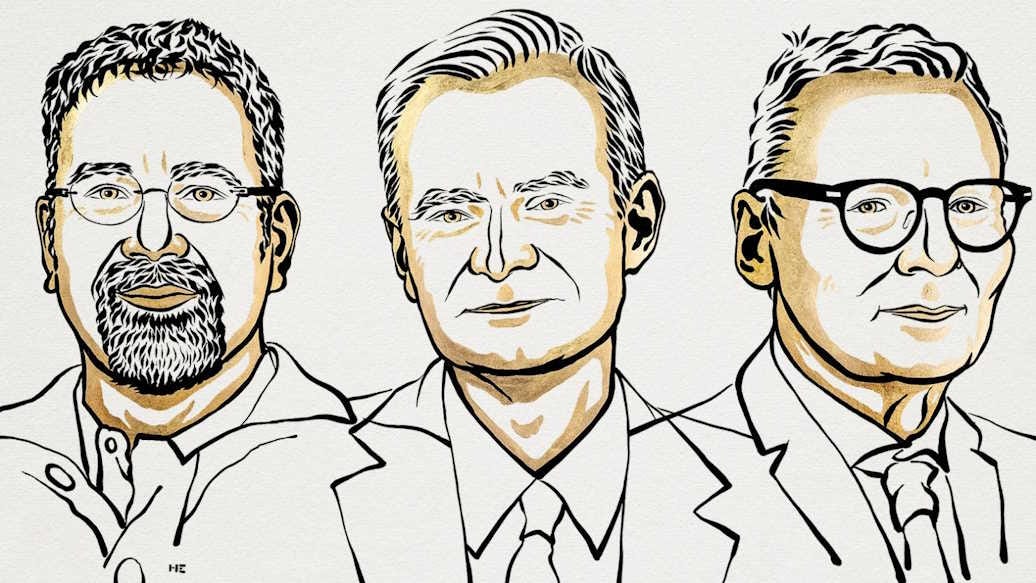You are using an out of date browser. It may not display this or other websites correctly.
You should upgrade or use an alternative browser.
You should upgrade or use an alternative browser.
3 Economists receive this years Nobel Prize for determining that water is indeed really wet..,
- Thread starter Jean toomer
- Start date
More options
Who Replied?Hella surprised this made it to Higher Learning.
But I been reading Tyler Cowen (can't stand his politics), Tarrabok (eff em), Noah Smith, and a handful of others since the World Financial Crisis.
Here's Noah on the topic.

 www.noahpinion.blog
www.noahpinion.blog
As for what they won the prize for...
"how European colonization led to some nations being rich while others are poor."
Which is basically what they said in 2012

 en.wikipedia.org
en.wikipedia.org
A lot of policy and philanthropy work has sort of gone in this direction.
But I been reading Tyler Cowen (can't stand his politics), Tarrabok (eff em), Noah Smith, and a handful of others since the World Financial Crisis.
Here's Noah on the topic.

A Nobel for the big big questions
Acemoglu, Johnson, and Robinson win a prize for their grand unified theory of development.
As for what they won the prize for...
"how European colonization led to some nations being rich while others are poor."
Which is basically what they said in 2012

Why Nations Fail - Wikipedia
A lot of policy and philanthropy work has sort of gone in this direction.
Dat boy Michael Roberts
More at

 thenextrecession.wordpress.com
thenextrecession.wordpress.com
....This conclusion I think applies to the latest winners. The work for which they received the $1m prize is for research that purports to show that those countries that achieve prosperity and end poverty are those that adopt ‘democracy’ (and by that is meant Western-style liberal democracy where people can speak out (mostly), can vote for officials every so often and expect the law to protect their lives and property (hopefully). Societies that are controlled by elites without any democratic accountability are ‘extractive’ of resources, do not respect property and value and so over time do not prosper. In a series of papers applying some empirical analysis (ie correlating democracy (as defined) with levels of prosperity), the Nobel winners claim to show this.
Indeed, the Nobel winners argue that colonisation of the Global South in the 18th and 19th centuries could be ‘inclusive’ and so turn the likes of North America into prosperous nations (forgetting the indigenous population) or ‘extractive’ and so keep countries in dire poverty (Africa). It all depends. Such is the theory.
This sort of economics is what is called institutional, namely that it is not so much the blind forces of the market and capital accumulation that drives growth (and inequalities), but the decisions and structures set up by humans. Supporting this model, the winners assert that revolutions precede economic changes and not that economic changes (or the lack thereof before a new economic environment) precede revolutions.
Two points follow from this. First, if growth and prosperity go hand in hand with ‘democracy’ and the likes of the Soviet Union, China, Vietnam are considered to have elites that are ‘extractive’ or undemocratic, how do our Nobellists explain their undoubted economic performance? Apparently, it is explained by the fact they started out poor and had a lot of ‘catching up’ to do, but soon their extractive character will catch up with them and China’s hyper growth will run out of steam. Perhaps now?
More at

Why nations succeed or fail: a Nobel cause
Daron Acemoglu, Simon Johnson and James A Robinson have been awarded the Nobel (really the Riksbank prize) in economics “for studies of how institutions are formed and affect prosperity.̶…
